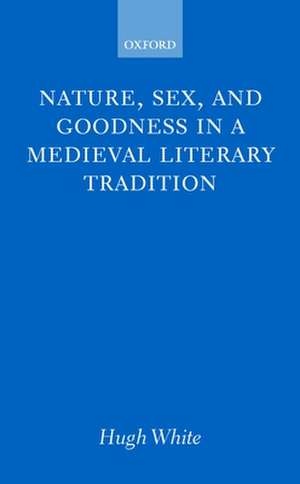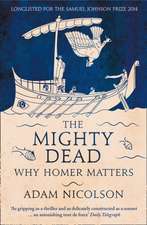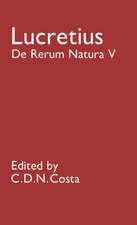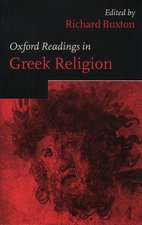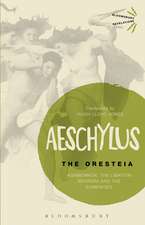Nature, Sex, and Goodness in a Medieval Literary Tradition
Autor Hugh Whiteen Limba Engleză Hardback – 23 noi 2000
Preț: 1108.75 lei
Preț vechi: 1688.10 lei
-34% Nou
Puncte Express: 1663
Preț estimativ în valută:
212.18€ • 220.27$ • 176.93£
212.18€ • 220.27$ • 176.93£
Carte tipărită la comandă
Livrare economică 11-17 martie
Preluare comenzi: 021 569.72.76
Specificații
ISBN-13: 9780198187301
ISBN-10: 0198187300
Pagini: 288
Dimensiuni: 145 x 224 x 21 mm
Greutate: 0.52 kg
Editura: OUP OXFORD
Colecția OUP Oxford
Locul publicării:Oxford, United Kingdom
ISBN-10: 0198187300
Pagini: 288
Dimensiuni: 145 x 224 x 21 mm
Greutate: 0.52 kg
Editura: OUP OXFORD
Colecția OUP Oxford
Locul publicării:Oxford, United Kingdom
Recenzii
Hugh White demonstrates convincingly that the concept of Nature inherited from the classical period and developed throughout the Middle Ages was morally equivocal.
Characterized by meticulous and undogmatic scholarship, Hugh White's book will be an indispensable guide to the contradictoriness of Nature in medieval literature ... Nature, Sex, and Goodness is a thoughtful, widely informed, open-minded book with a rare cohesion of purpose. Eschewing new historicist and other theoretical discourses, it moves tenaciously and lucidly among primary sources in a way that C. S. Lewis would have approved, while calculatedly shaking up the very medieval 'world view' Lewis helped to construct.
Readers will be indebted to White not only for the meticulous and scholarly manner in which he presents his case, but also for the clarity and assurance of his writing. This is complemented by high standards of printing and presentation.
This is an interesting book, which provides a full and convincing account of a significant tradition in medieval writing.
User-friendly in more ways than one: it thoughtfully provides the dates of the writers it cites, as well as generous quotations from the primary sources, and indications of the secondary sources, which appear both in the footnotes and in the References section.
Characterized by meticulous and undogmatic scholarship, Hugh White's book will be an indispensable guide to the contradictoriness of Nature in medieval literature ... Nature, Sex, and Goodness is a thoughtful, widely informed, open-minded book with a rare cohesion of purpose. Eschewing new historicist and other theoretical discourses, it moves tenaciously and lucidly among primary sources in a way that C. S. Lewis would have approved, while calculatedly shaking up the very medieval 'world view' Lewis helped to construct.
Readers will be indebted to White not only for the meticulous and scholarly manner in which he presents his case, but also for the clarity and assurance of his writing. This is complemented by high standards of printing and presentation.
This is an interesting book, which provides a full and convincing account of a significant tradition in medieval writing.
User-friendly in more ways than one: it thoughtfully provides the dates of the writers it cites, as well as generous quotations from the primary sources, and indications of the secondary sources, which appear both in the footnotes and in the References section.
